Summer SURF 2021
Below are the project descriptions for 2021 Summer SURF projects. Carefully read the project descriptions to determine to which project(s) you are interested in applying. When submitting the application, students should address their interest in the specific project and how their qualities and experiences can aid the faculty their research. Students may want to contact the specific faculty mentor get acquainted with the faculty and to discuss their interests and project.
The deadline for student applications is February 28, 2021, by midnight.
Students, you will find a unique application link to each project below. The application link appears at the end of the faculty's project description.
Faculty Research Projects
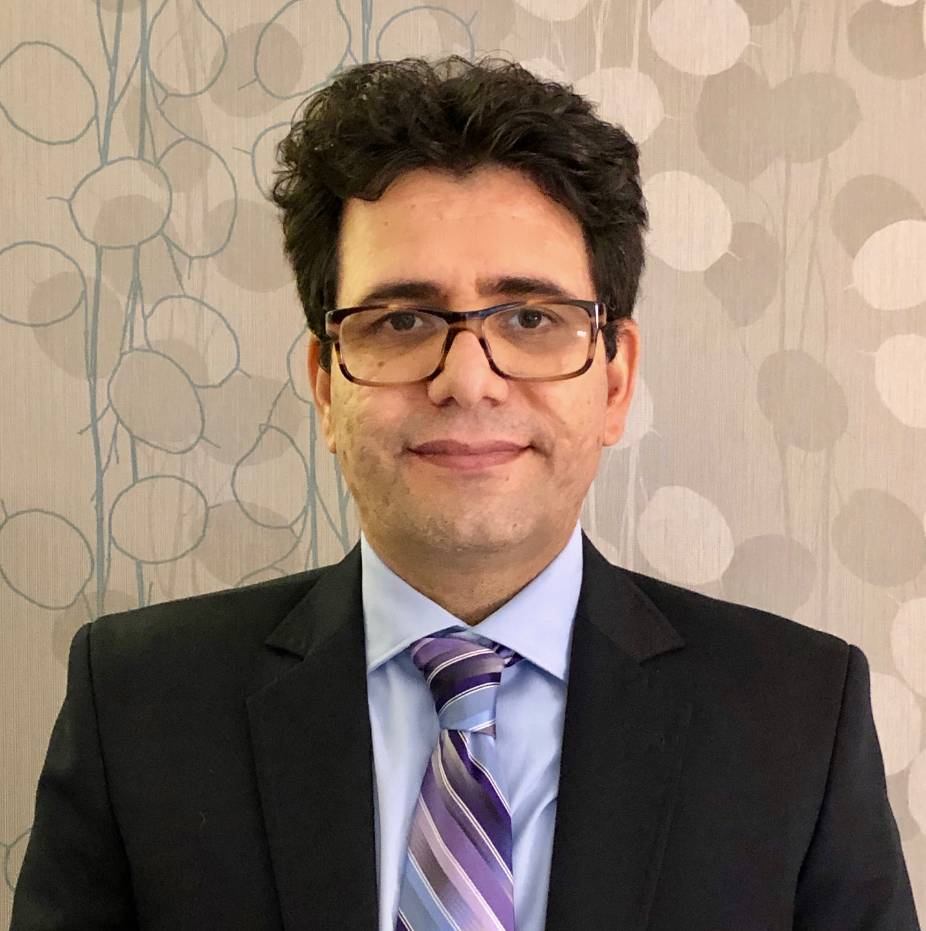
Reza Abdolee (reza.abdolee@csuci.edu) received his Ph.D. in Electrical and Computer Engineering from McGill University in 2014. He is currently an Assistant Professor in the Dept. of Computer Science at California State University Channels Islands (CSUCI) and the director of the Cybersecurity and Wireless Systems Lab. at CSUCI. Dr. Abdolee has been holding several other academic and industry positions in universities and high-tech companies worldwide, including, the University of California, Los Angeles (UCLA), University of California, Santa Barbara (UCSB), Bell Labs, Qualcomm Inc., and California State University, Bakersfield (CSUB). During the past few years, Dr. Abdolee research has resulted in several patents and inventions in addition to many peer-reviewed journal publications and conference proceedings. He is currently conducting research in the area of cybersecurity and wireless communications with applications to cyber physical systems (CPS).
Project Title and Description - “Online Cybersecurity Monitoring Platform for Web Application and Wireless Networks”
The US Government has identified cybersecurity as one of the most serious economic and national security challenges we face as a nation today. Cybersecurity Venture revealed that in 2018, hacker stole half a billion of personal records. It has been reported that there is a cyberattack every 39 second, affecting one in three American each year. These statistics and many other frequent cyberattacks incidents reveal the urgency of the matter and the ever-growing need for cybersecurity professionals in the country. This research aims to deeply immerse Computer Science students to cutting-edge cybersecurity research and expose them to real-world challenges in developing cybersecurity software and applications. In this research, students will practice the core skillsets in cybersecurity and software development. Equipped with the latest cyber security tools, students will be exposed to a simulated industry environment where they must complete the tasks embedded in the realistic context of work as an entry-level cybersecurity professional. The hands-on penetration testing practices offered throughout this program are designed to provide the necessary problem-solving skills and knowledge that students need for a career in this field. Penetration testing is a series of activities and processes undertaken to identify cybersecurity vulnerabilities of a computer systems and networks. Penetration testing helps to measure the effectiveness of the security mechanisms implemented to keep information and data safe and secure. Nowadays, wireless networks protocols, including WiFi, Zigbee, LoRaWAN constitute a sizeable portion of computer networks, which are more susceptible to cyberattacks. A penetration test on wireless networks is a proactive and authorized attempt to evaluate the security of an IT infrastructure by safely attempting to exploit system vulnerabilities, including OS, services and application flaws, improper configurations, and even unintentional end-user errors. Such assessments are also useful in validating the efficiency of network security mechanisms, as well as the end users’ adherence to security policies. Several operating system distributions such as Kali Linux, Pentoo are equipped and designed for penetration testing. However, these systems require highly skilled professional with deep technical knowledge about networking, cyberattacks and penetration testing methods to manually enter commands and keywords for each attack and penetration testing methods. In this summer program, the aim is to design and implement an online cybersecurity platform for penetration testing and cybersecurity monitoring of web applications and wireless networks. The product of this research will be an automated penetration testing tool that can be run by regular computer users with no or little expertise in computer science and cybersecurity. Required Knowledge and Skills: The applicant requires to demonstrates some knowledge and/or a proven record of success in the following areas: i. Scripting language skills in Java, Python, Shell, HTML, and C++ ii. Basic ethical hacking and penetration testing in Linux and windows environment iii. Developing web applications using scripting language iv. Database and backend design v. Familiarity with software engineering and architecture vi. Preparing technical reports, presentations, and papers.
Click here to apply to Dr. Abdolee's project.

Theresa Avila is an Assistant Professor of non-Western Art History at California State University, Channel Islands. She earned a Ph.D. in Art History from the University of New Mexico with a focus on Modern Latin American and Latin@x art. As a scholar and curator, Dr. Avila's work focuses on the intersections between the visual and political, as she interrogates historiography, nation-building, citizenship, systems of differentiation, social justice struggles, and civil rights protest. Publications include the essay "Echoing the Call for Revolution: Emiliano Zapata in Chican@x Art" (2019), the book Making and Being Made: Contemporary Citizenship, Art, and Visual Culture (2017), and the co-edited special issue of Third Text (2014) focused on “Art and Revolution in Mexico.” Forthcoming publications include the invited chapter “The Barrio Mobile Art Studio:” for the fifty-year anthology of the Graphic Art and Community Center Self Help Graphics and a graphic novel on the Mexican Revolution based on a print portfolio produced in 1947 by the Mexican art collective El Taller de Grafica Popular. Dr. Avila firmly believes we must activate art in meaningful ways, and she dedicates herself to community-oriented projects that engage art as a tool for change.
Project Title and Description - "Plotting counter tactics to evasive strategies of Manifest Destiny: An investigation of the representation of indigenous communities of the Americas in U.S. landscapes that depict national parks and significant natural sites"
This project allows students an opportunity to research and explore the role of art in society, historiography and the United States, the relationship between art and politics, and digital humanities. Dr. Avila examines the historiography of the United States through art and for this project focuses on landscape paintings and photographs of national parks from the nineteenth century. We will investigate the representation of indigenous communities of the Americas within national landscapes to better understand and illustrate the role of art in constructing difference, citizenship, and belonging. The study and examination of the historic representation of indigenous communities of the Americas and landscapes will be part of the project’s focus. Research of national legislation from the nineteenth century that had any impact on indigenous communities and/or the formation of national parks in the United States will be identified and examined for its impact on the communities of study and the images of the sites affected. This research project involves digital humanities in that data collection on indigenous communities, national parks, and related legislation will be plotted on a Google Map. The charting of the data in this format is meant to visualize in a unique manner the relationship of art and politics, as well as may provide insights into the role of art in the construction of nation. The proposed project and related research can be conducted face to face or online via Zoom meetings and utilizing digitized and online resources. My ideal research team would include students from diverse fields of study, in particular: the arts, history, communications, political science, and/or math. All students would be involved in each aspect of the project, but within their own area of expertise they could serve to advise and support the group in distinct tasks. The findings of this study will support my own understanding of the role of art in the construction of nation and citizenship. Furthermore, I am the co-editor of a special issue on landscapes in the Americas for the journal, Latin American and Latino Visual Culture (LALVC) due to be published in the spring on 2023. The research conducted by students as part of the SURF project has the potential to impact my own essay for this issue, and if this is the case the SURF program and students involved would be properly credited.
Click here to apply to Dr. Avila's project.
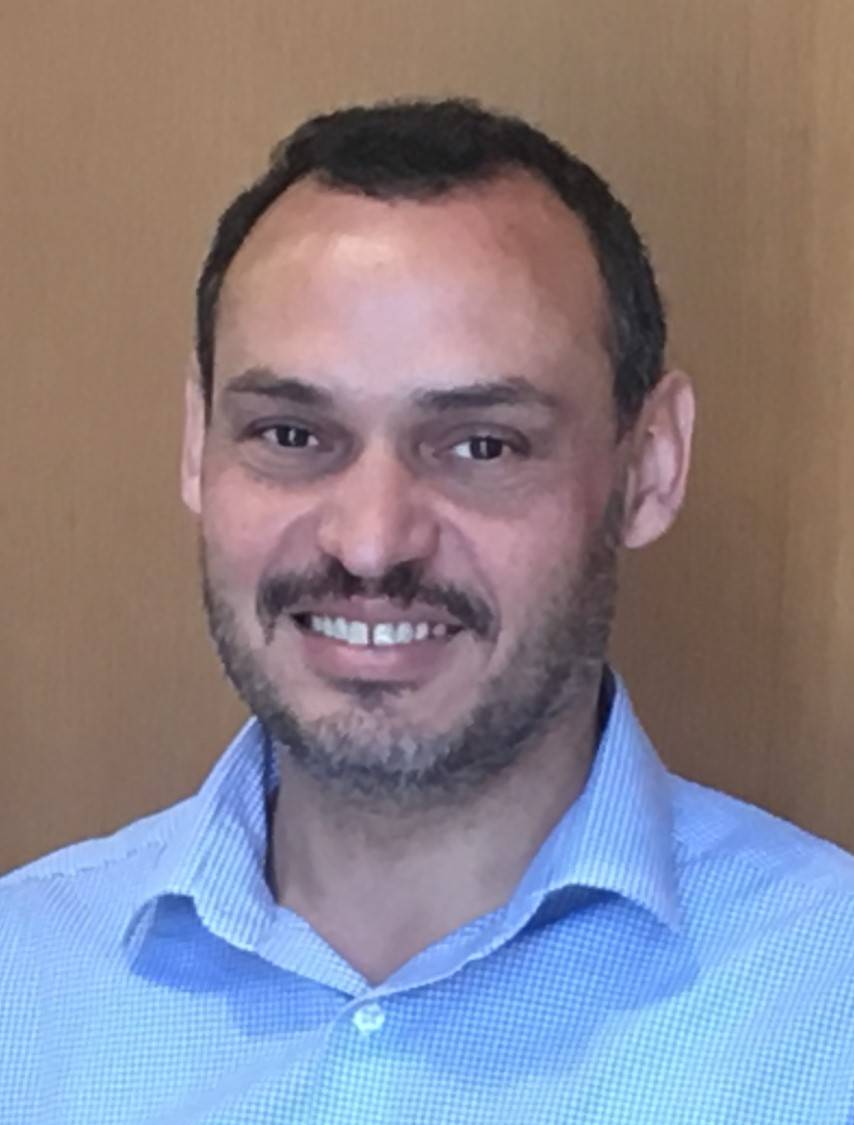 Dr. Ahmed Awad is an Associate Professor of Chemistry at CSUCI. He received his Ph.D. in Bioorganic Chemistry from University of Ulm in Germany, and did his postdoctoral research at Iowa State and UC Santa Barbara. His research interest is in design and development of novel therapeutics for treatment of cancer and infectious diseases. He focuses on nucleoside analogues and nucleic acids chemistry to develop novel therapeutics.
Dr. Ahmed Awad is an Associate Professor of Chemistry at CSUCI. He received his Ph.D. in Bioorganic Chemistry from University of Ulm in Germany, and did his postdoctoral research at Iowa State and UC Santa Barbara. His research interest is in design and development of novel therapeutics for treatment of cancer and infectious diseases. He focuses on nucleoside analogues and nucleic acids chemistry to develop novel therapeutics.
Project Title and Description - "Design, development and computational studies of novel nucleoside analogues as therapeutics for pancreatic cancer"
Design, development and computational studies of novel nucleoside analogues as therapeutics for pancreatic cancer: The dismal circumstance of pancreatic cancer is largely due to late diagnoses, difficult to detect in its early stages, and it spreads rapidly to nearby organs such as liver. Pancreas is a gland in the digestive system produces enzymes that regulate blood sugar. In pancreatic cancer, uncontrolled cell growth begins in parts of the pancreas which develop tumors that interfere with its function. In the US over 50,000 new cases of pancreatic cancer are reported annually making it the 3rd most common cause of cancer deaths. Symptoms includes loss of appetite, weight loss, pain in the upper abdomen and in the back, fatigue and depression. Treatments include surgery, chemotherapy, and radiation, with a mean survival rate of approximately six months. Drug resistance, and overall aggressive biology are major challenges in the treatment. Nucleosides are the building blocks of the nucleic acids, RNA and DNA. Current standard chemotherapy treatments for pancreatic cancer is gemcitabine, a nucleoside analogue that has been approved by FDA in 1997. However, its effectiveness is far from satisfactory due to cellular mechanisms limiting their transport, activation, and overall efficacy. The survival rate at 12 months was 18% for gemcitabine patients. Therefore, the development of novel therapeutics are presently under study. In this proposed SURF project, students will design and develop novel nucleoside analogues and investigate their efficacy for treatment of pancreatic cancer.
The project plans are designed considering the current COVID-19 pandemic and the possibility of carrying out the work in a virtual environment. The first part involves computational studies to design and optimize the proposed chemical structures, and the results will be analyzed to examine the binding affinity to the enzymatic targets in pancreatic cancer cells. The toxicity properties will be also computationally evaluated. A widely used computational biology software that is available for CSUCI students will be utilized for these studies. The participating SURFers will perform literature survey on the development of such therapeutics, perform the computational studies and analyze their data, and will develop an effective and convenient methods to synthesize the developed molecules. The faculty member will introduce the synthetic methods, and will propose alternative solutions for possible problems. With the guidance’s of the faculty research mentor, students will collect reported protocols and will develop their synthetic schemes. Students proposals will be discussed before an efficient synthetic route are recommended. If in-person lab work is permitted, after intensive training provided by the faculty, students and the faculty will work on their synthetic protocols, purify the products by column chromatography, characterize new compounds by spectroscopic techniques (Mass, IR, and NMR), and analyze their data for the final conclusion. The participating SURFers will expect to be excited to complete their work and submit it for presentation or/and publication. They should commit to the eight-week faculty-mentored student research collaborative in summer 2021 and also be excited to work during the fall semester 2021 to complete the project. The faculty will be present to mentor and train students, and will make himself available, via zoom or in-person if allowed, at any time to provide them with guidance and advice. There will be a daily group meeting to discuss the progress of the project. Students will be recognized for their efforts. Those who produced outstanding research will be able to present their work at scientific conferences (Ex: SCCUR, CI SAGE, CSUPERB, NCUR, and ACS) and will be encouraged to submit their work for publication. In addition, outstanding students will be nominated for research awards and scholarships.
Click here to apply to Dr. Awad's project.
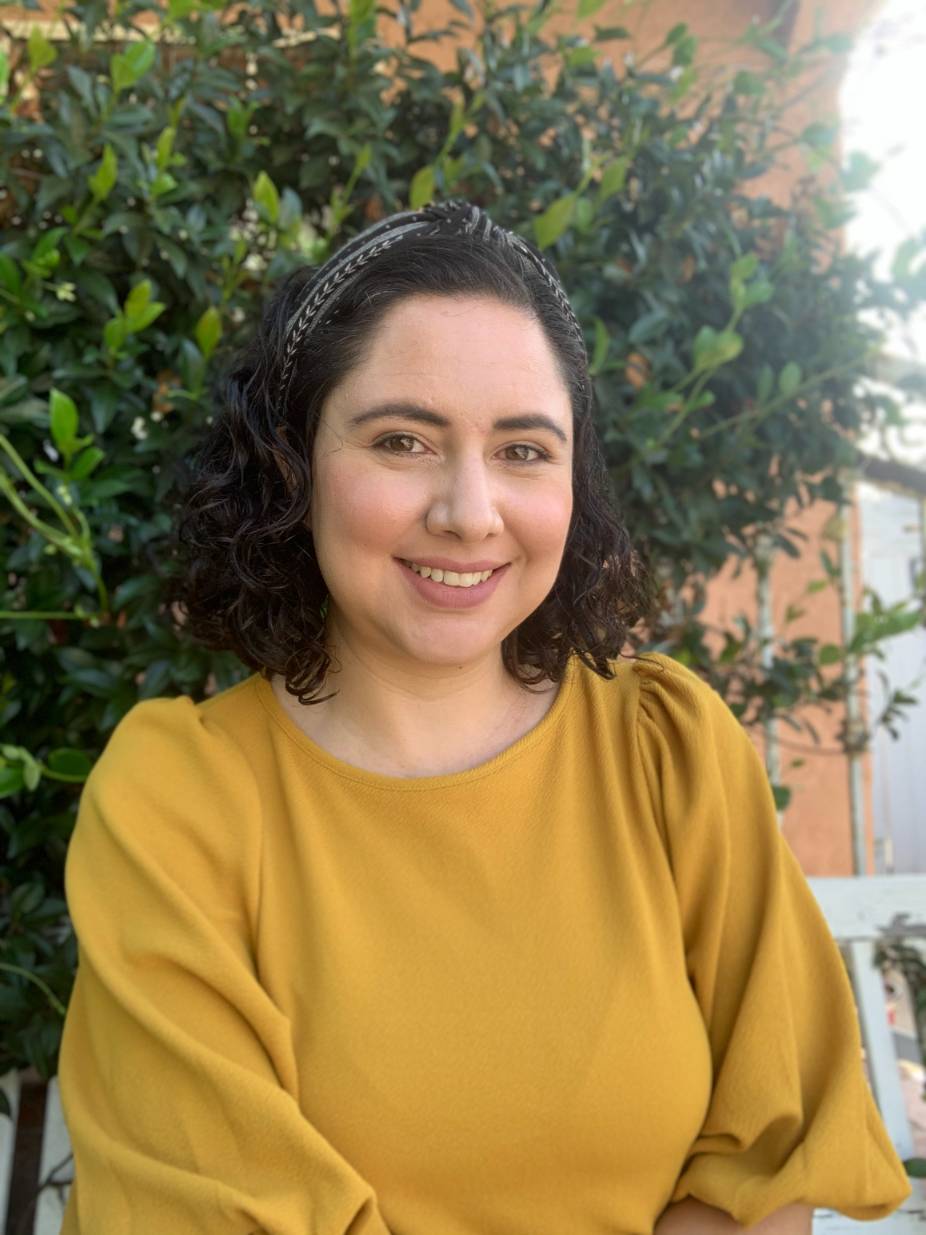 Dr. Maricela Becerra joined CSUCI in the fall of 2020 as an assistant professor of Spanish and Latin American Literature and Culture. Her research focuses on interdisciplinary analysis of State violence, trauma, and memory in Latin America. Dr. Becerra specializes in contemporary Mexican social movements and memories as resistance in cultural production. Born in Mexico, Dr. Becerra immigrated to Southern California at the age of 12. She is a proud alumna of California State University, Long Beach where she received her bachelor's and master's degrees. She received a Ph.D. in Hispanic Languages and Literature from UCLA.
Dr. Maricela Becerra joined CSUCI in the fall of 2020 as an assistant professor of Spanish and Latin American Literature and Culture. Her research focuses on interdisciplinary analysis of State violence, trauma, and memory in Latin America. Dr. Becerra specializes in contemporary Mexican social movements and memories as resistance in cultural production. Born in Mexico, Dr. Becerra immigrated to Southern California at the age of 12. She is a proud alumna of California State University, Long Beach where she received her bachelor's and master's degrees. She received a Ph.D. in Hispanic Languages and Literature from UCLA.
Project Title and Description - "Social Media and the Feminist Uprising in Mexico"
It is estimated that approximately twenty women disappear and ten die every day in Mexico. Social media has become a crucial tool in the efforts to find the missing women, demand justice, as well as organizing and documenting recent feminist movements. This book project tentatively titled #FueElEstado: Memory, Movements, and Hashtags, focuses on digital memorials and the use of social media as part of the contemporary collective memory of violence and resistance in Mexico. The project uses a digital humanities approach to examine the global impact of social media in the memorialization of current and past violent events. Although the final project will center around several digital mobilizations of the last decade, the SURF project will be dedicated to the recent feminist uprisings in Mexico. Grassroots feminist movements have emerged throughout Latin America in recent years, so while we will focus on the uprisings in Mexico, our research will also examine the transnational efforts and collectivity of these movements. These movements respond to the increasing number of femicides, gender violence, and strict abortion laws in Latin America. For this project, students will research, document, and analyze hashtags and posts related to the recent feminist movements in Mexico on several social media platforms. Each student will pose a research question, focus on at least two hashtags, and will create an interactive presentation of their findings using the platform Sutori. Students will also create a collective publishable thick map representing the memorialization and mobilization of Mexican feminist movements that will be included in the final book project. This collaborative research project will be presented at the annual Urban Humanities Initiative Alumni Salon at UCLA where students will not only have the opportunity to present their findings as a team but also exhibit their thick maps and Sutori pages. Any student interested in Mexican social movements with reading knowledge of Spanish is welcome. Experience using social media platforms such as Instagram, TikTok, Facebook, and Twitter is a plus. As part of this project, I will be facilitating workshops on thick mapping, Sutori, and using social media as a research tool in the humanities. The research agenda for this summer is designed to be completed entirely online with virtual check-ins, trainings, and collective analysis of our findings.
Click here to apply to Dr. Becerra Garcia's project.
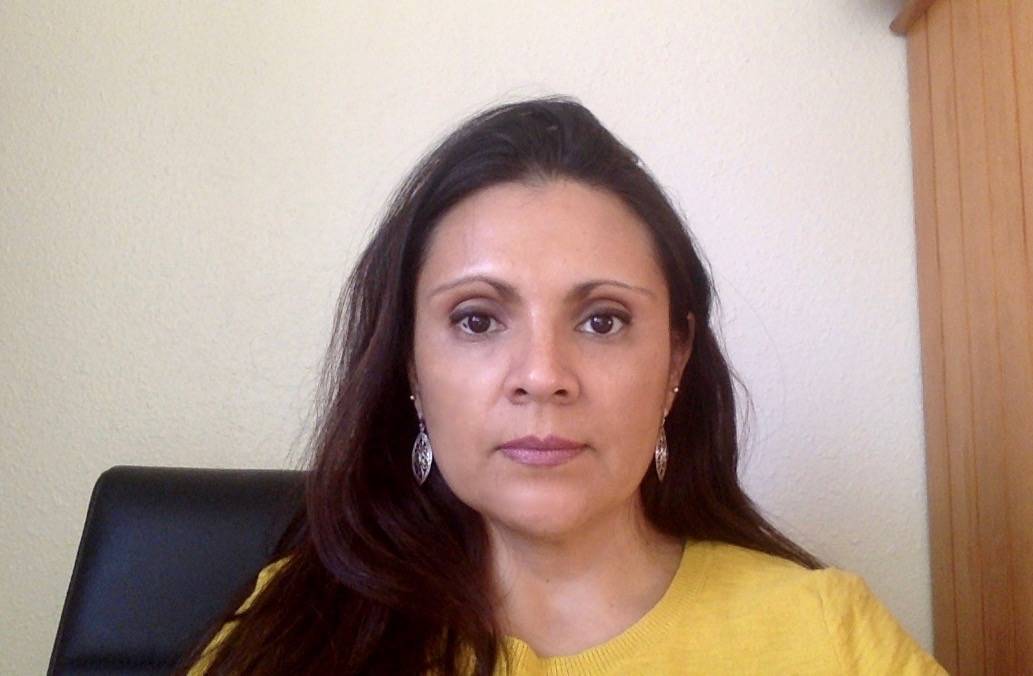 Dr. Karina Chavarria joined the Sociology Program at California State University Channel Islands as an Assistant Professor in 2018. She works closely with undocumented students and the immigrant community more broadly. Her research bridges multiple sociological sub-fields: education, migration, and race and ethnicity. She investigates intersections across these fields through an analysis of Latinx children of immigrants and undocumented youth’s integration within society’s major institutions, with a particular emphasis on schools and how organizational practices shape Latinx students’ social experiences and academic outcomes. Her current research examines undocumented college students’ academic and wellbeing outcomes across the UC/CSU systems, focusing on the ways access to equitable opportunities is still compromised by exclusions linked to undocumented status.
Dr. Karina Chavarria joined the Sociology Program at California State University Channel Islands as an Assistant Professor in 2018. She works closely with undocumented students and the immigrant community more broadly. Her research bridges multiple sociological sub-fields: education, migration, and race and ethnicity. She investigates intersections across these fields through an analysis of Latinx children of immigrants and undocumented youth’s integration within society’s major institutions, with a particular emphasis on schools and how organizational practices shape Latinx students’ social experiences and academic outcomes. Her current research examines undocumented college students’ academic and wellbeing outcomes across the UC/CSU systems, focusing on the ways access to equitable opportunities is still compromised by exclusions linked to undocumented status.
Project Title and Description - "Unequal Educations-Assessing the Role of Institutional Context for Undocumented Latina/o/x College Students’ Academic Success and Wellbeing Amidst COVID 19 Pandemic"
In the past decade, California has taken the lead in expanding opportunities for undocumented students to attain a college education. Notably, passing the CA Dream Act which allows access to state financial aid. And yet, undocumented students continue facing barriers in accessing educational opportunities and resources on college campuses (Terriquez 2015; Gonzales 2016). Critically, we have a limited understanding of whether and how the COVD-19 pandemic has created additional barriers for undocumented college students’ to achieve academic success. Complicating matters further, four-year (UC/CSU) public institutions vary widely in available resources to help undocumented students adjust to pandemic life. In fact, over the past decade, the UC and CSU systems have unequally invested in building institutional resources for undocumented students. Thus, this project aims to assess whether and how institutional context matters in undocumented Latina/o/x college students’ educational and well-being outcomes. In particular, the project focuses on understanding the following: What have been the immediate educational and wellbeing consequences of COVID-19 among undocumented Latina/o/x college students? To what extent does university context and students’ campus integration moderate the negative effects of the pandemic? This project breaks new ground as a CSU/UC survey of undocumented students and comparative analysis across institutions is the first of its kind of California’s public four-year universities. As such, one of the primary goals of this project is to identify and develop effective policies and programs to implement across the CSU/UC systems and mediate educational, social-emotional, and resource inequities among undocumented college students in California’s public universities. Understanding the impact of immigration status and identifying effective policies to mediate it are critical for ensuring full integration and reducing inequality for undocumented students and their families. I strive to create collaborative relationships with students by sharing the social capital and knowledge I gained from academic mentors, K-12 teachers, and colleagues in social justice advocacy organizations. The students will engage in the following activities: 1) conduct an independent literature review of articles on undocumented college students’ academic and social experiences, 2) assist in developing the interview protocol to be used in conducting interviews with CI undocumented college students, 3) assist in writing literature reviews for paper manuscripts, 4) aid in conducting analysis of interviews, and 5) present our findings at the Fall Faculty-Student Research Showcase and the California Sociological Association Conference.
Click here to apply to Dr. Chavarria's project.
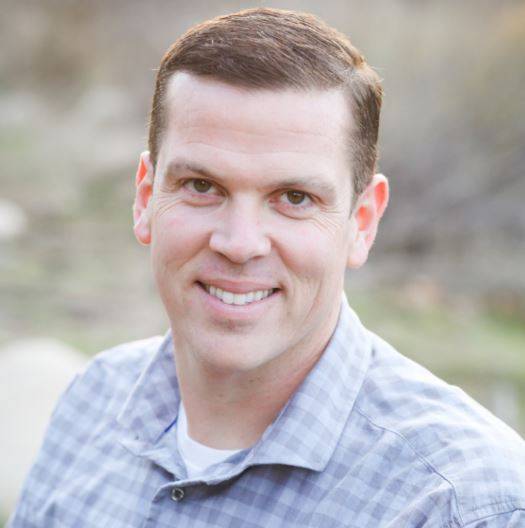 Dr. Thomas A. Clobes has been with the Health Sciences program at California State University Channel Islands since Fall 2017, bringing over 20 years of relevant healthcare industry experience to the classroom. As a first-generation college student native to Ventura, Dr. Clobes feels a strong connection with the student body at CSUCI and enjoys collaborating with students of diverse backgrounds. He has a B.S. in Biology, a B.S. in Psychology, an M.S. in Administration, and a Ph.D. in Health Sciences. He is nearly finished with a second M.S. degree in Medical Cannabis Sciences & Therapeutics from the University of Maryland School of Pharmacy, the first degree of its kind. This recent academic work has shifted his research focus into this area.
Dr. Thomas A. Clobes has been with the Health Sciences program at California State University Channel Islands since Fall 2017, bringing over 20 years of relevant healthcare industry experience to the classroom. As a first-generation college student native to Ventura, Dr. Clobes feels a strong connection with the student body at CSUCI and enjoys collaborating with students of diverse backgrounds. He has a B.S. in Biology, a B.S. in Psychology, an M.S. in Administration, and a Ph.D. in Health Sciences. He is nearly finished with a second M.S. degree in Medical Cannabis Sciences & Therapeutics from the University of Maryland School of Pharmacy, the first degree of its kind. This recent academic work has shifted his research focus into this area.
Project Title and Description - "Medical Cannabis Education"
Medical cannabis has had an increasing level of acceptance in the mainstream medical community. The majority of states in the United States have legalized or decriminalized access to medical cannabis in recognition of the benefits this plant can offer many patients. There still remains, though, a significant stigma against those who use it despite evidence of its effectiveness to aid with a variety of medical conditions. Given the disparity of incarceration rates between blacks and other racial groups for cannabis-related infractions, it is hypothesized that this stigma is greater for blacks than whites. With the current opioid epidemic, the need for removing barriers and implicit bias against medical cannabis has never been greater in order to offer this much safer alternative to more patients. This research project will utilize a survey to measure the attitudes of adults towards medical cannabis and patient access to it. Differences in perceptions of access based on patients’ race will also be measured as an indication of implicit bias. Participants will then attend a five-series educational program on medical cannabis covering the history of medical cannabis, use with chronic pain, effectiveness with cancer patients, applications to anxiety and post-traumatic stress disorders, and negative effects of cannabis. Changes in attitudes will be reassessed at the conclusion of the series. Student researchers will work collaboratively to: (1) write a literature review of relevant peer-reviewed articles on perceptions of users of medical cannabis and inherent biases towards people of color who use medical cannabis. This will include literature from medical, criminology, and multi-disciplinary journals. (2) Contribute and/or participate in any remaining educational sessions. (3) Analyze the data from the pre- and post-surveys collected before and after the educational series. (4) Work to compose a manuscript for publication. Student researchers will be given the opportunity to share co-authorship based on their individual contributions. Student researchers will meet three to five times peer with Dr. Clobes during the summer collaboration to plan out the literature search strategy, plan and coordinate education sessions, receive mentoring on the writing and research process, analyze the data, and compose the manuscript. This is a unique opportunity that will prepare students who are interested in graduate school in the fields of public health, medical school, or any of the health sciences. This would be an ideal project for biology majors (particularly pre-med students), health sciences majors, or anyone with an interest in medical cannabis who also feels comfortable completing a health-related literature review and/or conducting data analysis. The project will be carried out in a virtual environment regardless of current COVID pandemic restrictions. In order to recruit as many participants as possible from multiple states, the educational program will be administered via Zoom. The activities student researchers will specifically be participating in can easily be carried out in-person or via Zoom. Thus, no modifications will be necessary if the current pandemic restrictions remain.
Click here to apply to Dr. Clobes's project.
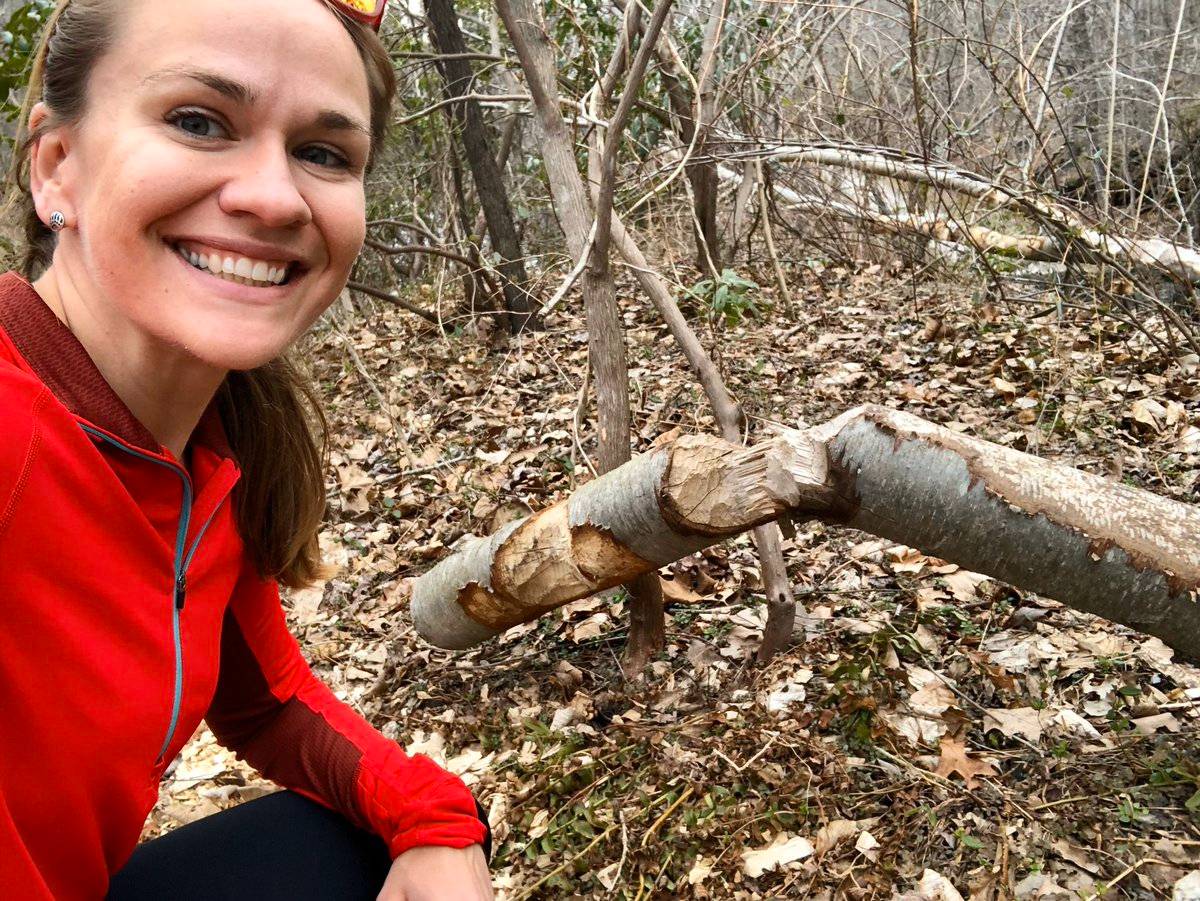 Dr. Emily Fairfax is an Assistant Professor of Environmental Science and Resource Management (ESRM). She double-majored in Chemistry and Physics at Carleton College, then earned her Ph.D. in Geological Sciences at the University of Colorado Boulder. Emily loves the outdoors - in particular, hiking, exploring, and feeling connected to nature. Her research falls into three categories: ecohydrology, data science/technology, and field accessibility. Her colleagues and students can vouch that when she says she can talk about beavers all day, she is not kidding.
Dr. Emily Fairfax is an Assistant Professor of Environmental Science and Resource Management (ESRM). She double-majored in Chemistry and Physics at Carleton College, then earned her Ph.D. in Geological Sciences at the University of Colorado Boulder. Emily loves the outdoors - in particular, hiking, exploring, and feeling connected to nature. Her research falls into three categories: ecohydrology, data science/technology, and field accessibility. Her colleagues and students can vouch that when she says she can talk about beavers all day, she is not kidding.
Project Title and Description - "Climate Change Be Dammed: the role of beavers in a warming Arctic"
Beavers are well-known ecosystem engineers. They build dams, which in turn create large ponds. From those ponds, the beavers dig canals and spread water throughout the landscape. The end result is a highly bio-diverse wetland ecosystem that my groups previous research has shown to be relatively unaffected by droughts and wildfires. However, this observed drought and fire resistance has only been studied in the American west. As beavers move further North into Arctic and sub-Arctic landscapes, it remains unknown if the observed drought and fire buffering effect is occurring in thermokarst (permafrost) and boreal systems. To begin answering this question, the research group will use remote sensing methods to locate beaver dams in the far north using satellite imagery. We will then compare beaver presence to remotely sensed hydrologic connectivity, ecologic connectivity, evapotranspiration, NDVI (plant greenness), and other environmental data. We will look at these data during normal periods as well as during droughts, fires, and abnormally warm periods in recent years, and compare that data to similar sites without beaver activity. The end goal here is to see if beaver activity can help protect Arctic and sub-Arctic ecosystems from drought and fire the way it does in the American West for grassland and forest ecosystems. This research project is remote sensing (i.e. computer) based. Although no field or lab work is required to complete this project, if the opportunity to safely go into the field arises we will visit local beaver dams in SLO, Santa Barbara, and other central/southern California counties. These field visits will help students visualize beaver landscape impacts and gain confidence describing the environmental impacts of beaver damming. We can try out using different field instruments and techniques that would be typically used in a more field-focused research project. However, the data actually being used for this specific research project is all remotely sensed and from locations 1000's of miles away (that we will not be traveling to). Students will spend most of their time collecting large volumes of remotely sensed data and performing simple GIS analysis. Additionally, students will perform an abbreviated literature review, watch webinars from the beaver-research community, and will be encouraged to submit their research findings as a poster to scientific conferences in Winter 2021.
For some background information on the relationship between beavers and wildfire and to see if this kind of project is something you'd be interested in, check out the links below for some media coverage of my recent project on beavers and fire in the American West:
- National Geographic
- Eos.org
- https://wildlife.org/beavers-create-fire-resistant-forest-patches/
- https://keyt.com/news/environment/2020/11/19/csuci-professors-proves-that-beavers-prevent-wildfires/
- https://youtu.be/aZRjbD_5lLw
Click here to apply to Dr. Fairfax's project.
 Dr. J. Jacob Jenkins is an Associate Professor of Organizational Communication and Campus Coordinator for CSU’s Affordable Learning Solutions (aka, OpenCI). Jenkins received his B.A. in Architecture from Drury University, and his PhD in Communication from the University of South Florida. He has been teaching full-time since 2005. During this time, Jenkins has published nearly 50 peer-reviewed journal articles, book chapters, and reference works – 6 of which were coauthored with undergraduate students from CI. Jenkins’ work to foster community within racially/ethnically diverse organizations has received national honors from the Carl Couch Institute, Waterhouse Family Institute, CMM Institute for Social Evolution, and National Communication Association. Jenkins’ more recent work centers on student success, retention, and time-to-graduation rates. He is especially passionate about increasing educational equity in higher education for historically underserved student populations. During his free time, Jenkins enjoys film, photography, and travel – having visited 6 continents and 30 countries to date.
Dr. J. Jacob Jenkins is an Associate Professor of Organizational Communication and Campus Coordinator for CSU’s Affordable Learning Solutions (aka, OpenCI). Jenkins received his B.A. in Architecture from Drury University, and his PhD in Communication from the University of South Florida. He has been teaching full-time since 2005. During this time, Jenkins has published nearly 50 peer-reviewed journal articles, book chapters, and reference works – 6 of which were coauthored with undergraduate students from CI. Jenkins’ work to foster community within racially/ethnically diverse organizations has received national honors from the Carl Couch Institute, Waterhouse Family Institute, CMM Institute for Social Evolution, and National Communication Association. Jenkins’ more recent work centers on student success, retention, and time-to-graduation rates. He is especially passionate about increasing educational equity in higher education for historically underserved student populations. During his free time, Jenkins enjoys film, photography, and travel – having visited 6 continents and 30 countries to date.
Project Title and Description - "Synoptic Leadership"
Within his best-known work, De Republica (circa 350 B.C.E.), Plato argues for what he calls “synoptic-minded” leaders. Stemming from the Greek word synoptikos – meaning “to view the whole together” – Plato describes a recursive relationship between cognitive maturation and one’s ability to see the inherent interconnection(s) that exist between disparate and seemingly unrelated aspects of social reality (Estienne, 1578). As children we are unable to recognize certain theoretical differences; as we mature, we gain the ability to make more subtle distinctions; however, Plato believed it was only in our most enlightened state that we are then able to draw meaningful and mutually beneficial connections between those distinctions. The Greek philosopher went as far as to characterize synoptic-minded leaders as “humanity’s most urgent need” (Dodson, 1911, p. 81). Yet despite Plato’s sense of urgency, he was never able to turn his attention to articulating what exactly a synoptic-minded leader *is.* Nor was Plato ever able to establish what tenants, characteristics, or pragmatic applications serve to define such a holistic and comprehensive leadership style – a style that seems more imperative in today’s increasingly interconnected world than ever before (Jenkins, 2018, 2019).
For each of these reasons, this proposed research project aims to build upon Plato’s notion of the synoptic-minded leader by developing an original, theoretical approach to organizational leadership that I tentatively refer to here as “Synoptic Leadership.” The specific role that student researchers will play in this process include: (1) crystalizing the study’s aim and scope, (2) analyzing Plato’s theoretical notion of the synoptic-minded leader, (3) synthesizing existing literature on contemporary leadership styles and approaches, (4) formulating practical/theoretical implications based on our group analyses, (5) developing both a visual and textual model of Synoptic Leadership, etc. These specific roles are not only well suited for a virtual environment, but also serve to involve students in every phase of the research process. The anticipated result is a 25-page academic study for competitive conference presentation and peer reviewed journal publication. Thus, student researchers will benefit from this project by developing their own leadership competencies, while receiving full authorship on all resulting presentations and/or publications.
Click here to apply to Dr. Jenkins's project.
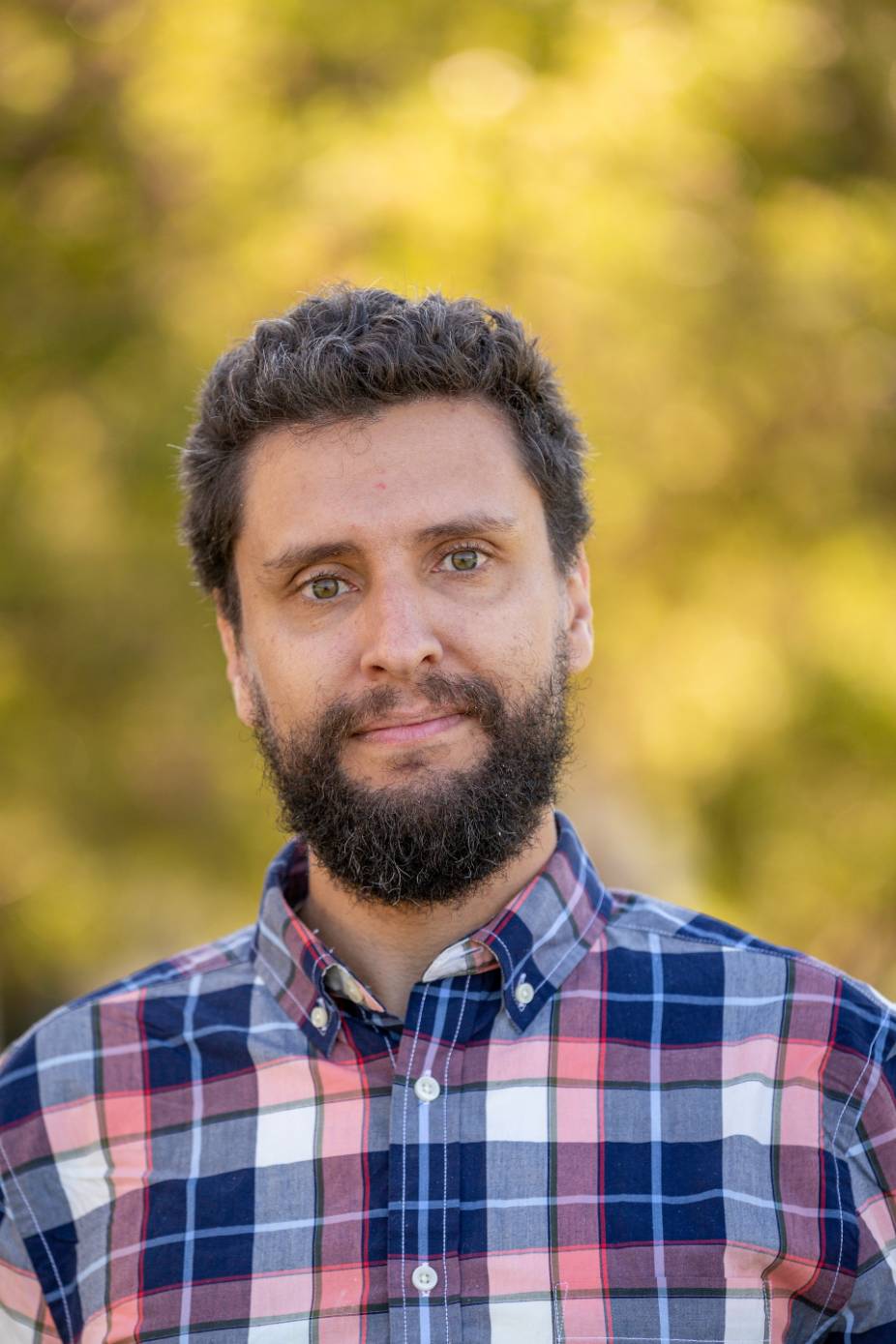 Dr. Eric Kaltman is an Assistant Professor in the Computer Science Department at CI. He has an interdisciplinary background in history, game design, library- and computer science. His research efforts focus on the creation of computationally-supported methodologies to aid in the organization, recovery, and study of legacy software objects and their documentary records. Currently, his research deals with the analysis of interactive software (video games, arts, and theater) production data. This type of material reveals dependencies on classes of software generally unknown outside of specialized fields, and thus is new to archival and library science research.
Dr. Eric Kaltman is an Assistant Professor in the Computer Science Department at CI. He has an interdisciplinary background in history, game design, library- and computer science. His research efforts focus on the creation of computationally-supported methodologies to aid in the organization, recovery, and study of legacy software objects and their documentary records. Currently, his research deals with the analysis of interactive software (video games, arts, and theater) production data. This type of material reveals dependencies on classes of software generally unknown outside of specialized fields, and thus is new to archival and library science research.
Project Title and Description -"Computational Archival Science Methods and the Interactive Arts"
Computational archival science (CAS) is an emerging trans-disciplinary field at the intersection of computer science, archival science, and digital humanities. Founded as a response to the rise of “big data” born-digital collections, CAS seeks to give practitioners from humanist fields better access to digital archives by incorporating computer science methodologies into the processing and presentation of archival content. The goal is to make the growing digital historical record more accessible and transparent, while also helping to articulate what it means to do archival research when documents that used to be cataloged and stored in physical spaces are now networked, digitized, and dependent on legacy software for interpretation and inspection. This SURF research project extends work already started on the analysis of a large (~20TB) production dataset comprised of two decades worth of “cutting-edge” interactive arts projects from a top-ranked international digital arts and entertainment program. The program’s outputs include a range of projects in digital games, virtual reality (VR), alternate reality (AR), interactive theater, computer animation, and human-computer interface design. Preservation and access to historical digital arts projects are, generally, complicated through: 1) a lack of historical understanding of creative production practices; 2) inaccessible file formats specific to deprecated creative software; and 3) in the case of production data, a volume of data too large to be summarized and explored without computational assistance. Through SURF, students will use computational tools and techniques to address the above complications and help answer some baseline research questions. How has work in interactive, interdisciplinary arts changed over the past two decades? What, exactly, are the comparative content and scope of different classes of projects? What software do we need to preserve to maintain access to legacy creative works? Can computational “big data” methods, like machine learning and file identification, help with these questions? Each student will be given a set of projects culled from the larger dataset and proceed with their own analysis through the use of three research techniques. First, the student will conduct a historical analysis making use of secondary contextual sources and potential interviews with former project advisors. Second, the student will make use of content analysis frameworks --- specifically, the DROID file format identification tool and the Anaconda data science toolkit --- to summarize their data and look for interesting patterns. Third, a single project will be chosen for re-implementation in CSUCI’s new Emulation-as-a-Service (EaaS) instance. EaaS allows for the installation of legacy computing environments (like Windows XP) on a cloud-based virtual machine that is configurable through a web-browser. Assuming a student has a computer with Internet access, any of the above techniques can be conducted virtually after the initial dissemination of datasets. The preliminary analysis of this data included just four of the over five hundred projects available and revealed many undocumented file types, intermediary software dependencies, and other evidence of the lived experience of interactive arts design that generally receive little scrutiny. Even basic metrics regarding the relative size of different project categories, like a comparison between game and animation projects, is generally unknown due to a lack of available collections. The ability to have a group of motivated students conduct a larger, multidisciplinary CAS analysis of this dataset could lead to a number of insights that would find ready publication in digital humanities, computer and archival science venues, most directly the CAS Workshop at IEEE’s Big Data Conference and the International Conference on Digital Preservation. Students will be given co-authorship credit relative to their contributions.
Click here to apply to Dr. Kaltman's project.

Dr. HyeSun Lee is an Assistant Professor of Psychology. With the expertise in Quantitative Psychology, she has been working with CI students since 2016 for substantive research in Psychology and mentored over 50 undergraduate presentations for professional conferences. Dr. Lee is especially interested in fairness in testing which is essential to sustain educational equity, diversity, and racial justice. To ensure fairness, she seeks to identify and address 1) threats to fairness in psychological/educational assessments, 2) how to evaluate fairness in assessments, and 3) how to estimate scores to ensure fairness. She is currently working on the development of psychosocial assessments for the 3-year grant project funded by the National Institutes of Health. She received her MA from Michigan State University and PhD in the University of Nebraska-Lincoln, specializing in Quantitative, Qualitative, and Psychometric Methods. In her free time, she likes painting, crocheting, and building Legos.
Project Title and Description -"Cultural Fairness in Psychological Assessments of Mental Health"
Fairness in testing is essential to proactively sustain equity, diversity, and racial justice. To ensure fairness, Dr. HyeSun Lee seeks to identify and address 1) threats to fairness in psychological/educational assessments, 2) how to evaluate fairness in assessments, and 3) how to estimate assessment scores to ensure fairness. Focusing on impacts of assessment scores on high-stakes decisions in schools, workplaces, and clinical settings, Dr. Lee's program of research aims to develop psychometric/statistical models to incorporate respondents’ diverse backgrounds into score estimation, thus eliminating unintended consequences in the use of scores. The outbreak of COVID-19 has led to an increased use of psychological assessments in the general population. People have reported an increased level of stress, anxiety, fear, sadness, and loneliness during the current pandemic due to an unprecedented lockdown, separation from loved ones, and financial pressure. To address the mental health need of the population, it is crucial to accurately assess mental health by using reliable and valid assessments. In addition to reliability and validity, fairness is an essential factor for the appropriate selection of psychological assessments. Fairness emphasizes that an individual’s demographic characteristics such as gender, race/ethnicity, disability, socio-economic status, regional/national orientation, or sexual orientation should not adversely affect assessment scores. The proposed project entitled “Cultural Fairness in Psychological Assessments of Mental Health” will explore psychological assessments for stress, anxiety, depression, and loneliness through the Psych-Tests data base (available via CI Broome Library) and examine cultural fairness in assessing mental health. The focus of the project is to identify potential threats to cultural fairness in psychological assessments and explore how cultural values and/or social norms affect cognitive processes involved in responding to assessment items measuring mental health. Students joining this project will use cognitive interview techniques to explore respondents' cognitive processes regarding their interpretations of questions, processes in constructing answers, and any difficulties in answering questions. The interview data will be used to identify whether respondent’s cultural values and/or social norms differentially impact the comprehension of questions and distort responses, thus negatively affecting assessment results. Based on the analysis results, students will revise problematic items which jeopardize cultural fairness and demonstrate whether their revision of the problematic items appropriately addresses potential threats through a second round of cognitive interviews. Students will learn about test fairness and cognitive interview techniques frequently used by practitioners and researchers in Social Sciences. The project will help students to be independent researchers through the development of scientific reasoning skills as well as abilities to draw logical inferences from research data, while providing engaging opportunities to understand the importance of cultural inclusiveness. Students will also be encouraged to submit their work to professional conferences. All of the research activities will be conducted via Zoom. The proposed timeline is as follows: Weeks 1-4 Learning about fairness in testing, the PsycTest data base, cognitive interview techniques, and analysis approaches Synthesizing information about assessments for stress, anxiety, depression, and loneliness Reviewing items and identifying problems through various cultural values and social norms Generating cognitive interview questions Conducting Zoom cognitive interviews Weeks 5-8 Analyzing interview data Revising problematic items based on the analysis results Conduct additional cognitive interviews to evaluate the improvement of cultural fairness Writing an abstract and creating a poster for conferences.
Click here to apply to Dr. Lee's project.
 Dr. Jennie Luna is an Associate Professor in Chicana/o Studies whose research focuses on the contemporary history and diaspora of Danza Mexica/Azteca tradition and its impact on Xicana Indígena identity, culture, and spirituality. As a danzactivist-scholar, Dr. Luna incorporates Nahuatl language study, decolonial scholarship, Indigeneity, Xicana spiritualities, traditional birthing methods, reproductive justice, and Indigenous food and healing practices. Her most recent article, “1999 twLF at U.C. Berkeley: an Intergenerational Struggle for Ethnic Studies” was published Fall 2019 in the Ethnic Studies Review, Special Issue on the Fiftieth Anniversary of the Founding of Ethnic Studies from the University of California Press. In 2016, her article, “Re-Membering Coyolxauhqui as Birthing Text” was published in Regeneración Tlacuilolli: UCLA Raza Studies Journal. Her piece, entitled, “La Tradición Conchera: The Historical Process of Danza and Catholicism,” published in Diálogo: Center for Latino Research, DePaul University in Chicago was awarded the 2014 Antonia I. Castañeda Prize of the National Association for Chicana and Chicano Studies. She has authored chapters in the following books: Voices from the Ancestors: Xicanx and Latinx Spiritual Expressions and Healing Practices and Decolonizing Latinx Masculinities, both published out of The University of Arizona Press. She has been a practicing doula for fifteen years and has assisted in over 40 births. She has been a danzante for thirty years and is the co-founder of Cetiliztli Nauhcampa Danza circle in New York City and Ventura, California.
Dr. Jennie Luna is an Associate Professor in Chicana/o Studies whose research focuses on the contemporary history and diaspora of Danza Mexica/Azteca tradition and its impact on Xicana Indígena identity, culture, and spirituality. As a danzactivist-scholar, Dr. Luna incorporates Nahuatl language study, decolonial scholarship, Indigeneity, Xicana spiritualities, traditional birthing methods, reproductive justice, and Indigenous food and healing practices. Her most recent article, “1999 twLF at U.C. Berkeley: an Intergenerational Struggle for Ethnic Studies” was published Fall 2019 in the Ethnic Studies Review, Special Issue on the Fiftieth Anniversary of the Founding of Ethnic Studies from the University of California Press. In 2016, her article, “Re-Membering Coyolxauhqui as Birthing Text” was published in Regeneración Tlacuilolli: UCLA Raza Studies Journal. Her piece, entitled, “La Tradición Conchera: The Historical Process of Danza and Catholicism,” published in Diálogo: Center for Latino Research, DePaul University in Chicago was awarded the 2014 Antonia I. Castañeda Prize of the National Association for Chicana and Chicano Studies. She has authored chapters in the following books: Voices from the Ancestors: Xicanx and Latinx Spiritual Expressions and Healing Practices and Decolonizing Latinx Masculinities, both published out of The University of Arizona Press. She has been a practicing doula for fifteen years and has assisted in over 40 births. She has been a danzante for thirty years and is the co-founder of Cetiliztli Nauhcampa Danza circle in New York City and Ventura, California.
Project Title and Description -"Advancing Birth Justice: Community-Based Doula Models/Birth Workers as a Standard of Care for Ending Racial Disparities"
This project is established upon the premise that: The survival/survivance of Mexican Xicanx Indigenous Peoples depends on their reproductive health and rights. The term “reproductive justice” suggests the profound linkages between the control and regulation of women’s fertility and reproductive health and the control and regulation of communities based on race, class, gender, sexuality, nationality, immigration status, and citizenship. Reproductive justice relies on an intersectional framework and recognizes that reproductive oppression is not an individual concern but a structural issue. Hence, a goal for this project is to understand and analyze the systems of oppression that shape women’s access to reproductive health, particularly for MeXicana Indigenous women of Ventura County. My goal is to work with students to conduct research with the final product being a draft of a local policy brief about the status of MeXicana Indigenous women in Ventura County and their birthing experiences. Utilizing two models that derive from Ancient Song Doula Services (focus: Black maternal health) in New York City and Tewa Women United (focus: Pueblo women maternal health) in New Mexico, students will work with both organizations to understand their research methods and tools and begin the work compiling data from local hospitals and community clinics learning about what services are available and accessible to primarily MeXicana Indigenous women in the county, including community birth workers and midwives. Students will assess cost analysis for these services and develop ideas around community driven solutions to the disparities that exist for MeXicana Indigenous women seeking reproductive health care. Some issues will include: sociolinguistic resources within local communities/hospital settings, access to Indigenous birthing practices, and health care access. This project will work well in the virtual environment. They will be collecting data that can easily be found online and I will set them up with organizations to conduct meetings and go over the various research models and determine how those models can be applied to Ventura County. This project will involve the collection of data, gathering of resources, and literature reviews. They will also develop the research model for future quantitative and qualitative data collection which will be conducted at a later time. Part of this overall project will be to create a database of all Xicana Indigena birth workers in the country and collect their information to be housed on a website I am working on with fellow Xicana birth workers. This will be an invaluable resources to birthing parents seeking a midwife or doula of color. Lastly, students will work to develop a culturally responsive birth calendar/guide to healthy pregnancy utilizing local MeXicana Indigenous wisdom. This will be modeled after Pauktuutit Inuit Women of Canada who developed this calendar as a resource to women in their community. The calendar combines western medical knowledge and traditional Indigenous wisdom to impart healthy pre-natal care practices. I have most of the materials needed, gathered my students from a previous capstone, but needs editing and organization in the final product. The long-term goal, which is very much in my “dream” phase is to create an Indigenous Reproductive Health center, where workshops, seminars, and birth education work can be conducted in multiple languages and in a culturally responsive environment on issues related to Women’s Reproductive Health. By students examining various models, developing a resource list and networking with these organizations, my goal is for students to develop a dream model for Ventura County that can be used in the future to advocate for such a center to exist.
Click here to apply to Dr. Luna's project.
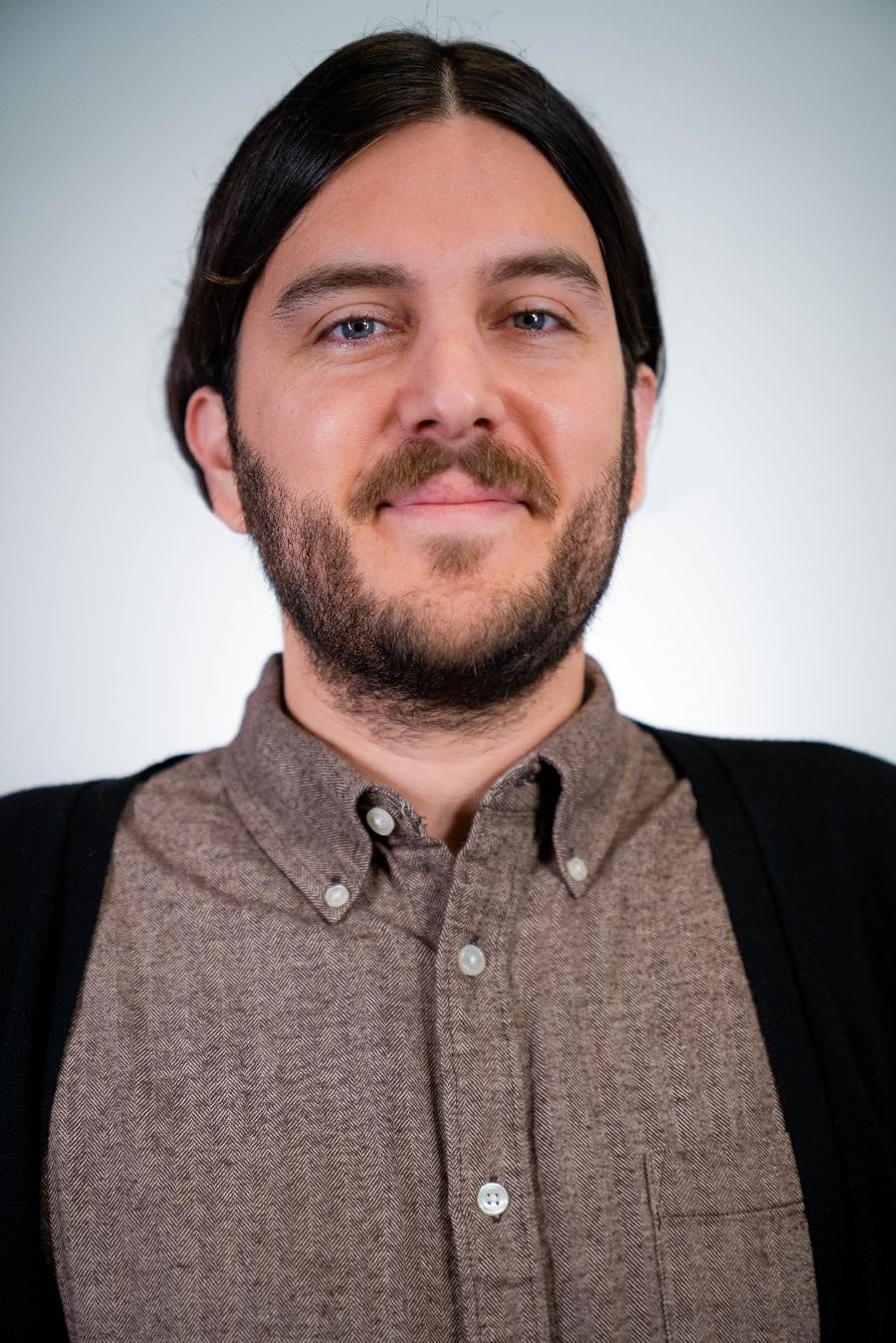 Dr. Francisco Roman Magdaleno Flores is a National Science Foundation fellow who works with songbirds as a comparative model for early social development in human infants. Originally from Oxnard, Dr. Magdaleno earned his B.S. in Psychology with a concentration in Applied Social Psychology and a minor in Sociology from Cal Poly, San Luis Obispo. He received his Ph.D. from Indiana University, Bloomington, where his graduate research focused on vocal and social development in the brown-headed cowbird (Molothrus ater). Currently, he is continuing research on visual and auditory signaling in cowbirds and is studying avian eggshells as a window into early prenatal development.
Dr. Francisco Roman Magdaleno Flores is a National Science Foundation fellow who works with songbirds as a comparative model for early social development in human infants. Originally from Oxnard, Dr. Magdaleno earned his B.S. in Psychology with a concentration in Applied Social Psychology and a minor in Sociology from Cal Poly, San Luis Obispo. He received his Ph.D. from Indiana University, Bloomington, where his graduate research focused on vocal and social development in the brown-headed cowbird (Molothrus ater). Currently, he is continuing research on visual and auditory signaling in cowbirds and is studying avian eggshells as a window into early prenatal development.
Project Title and Description - "The Shape of an Eggshell: Implications for Early Development"
Songbirds are an established comparative model for social and vocal development in humans. Studies based on vocal development in songbirds, for example, have provided important insights into mechanisms that are essential for early speech development in human infants. The ability to address developmental questions in birds is facilitated by the fact that their eggshells can be easily preserved. The aim of this SURF project is to extend previous work I have conducted on the interrelation of structural features of the prenatal egg environment and enable multiple undergraduate research fellows at CSU Channel Islands to be involved with this research during summer 2021. The overall goal will be for them to conduct a study that focuses on measures of eggshell size. Specifically, they will investigate the eggs of the song sparrow (Melospiza melodia) and relate individual differences in egg size to the number of eggs in a set laid by a female (i.e., clutch size). Student researchers will work as a team and: 1) Conduct an independent literature review of peer-reviewed articles on prenatal development in humans and songbirds. Because this material is heavily rooted in biology and psychology, this project will be inherently interdisciplinary. 2) Collect images from the Western Foundation of Vertebrate Zoology online database, which offers free and open access to pictures of complete egg clutches from hundreds of different bird species. 3) Gather size measurements from the images that were collected. 4) Apply appropriate statistics to study the relationship between various structural features of the eggs based on clutch size. 5) Present findings at undergraduate research conferences (e.g., Southern California Conferences for Undergraduate Research; Fall Faculty-Student Research Showcase; Psychology Poster Session) and gain experience preparing a written manuscript for publication. All of the proposed tasks are feasible and can be easily accomplished through this eight-week faculty-mentored research project that will involve bi-weekly team meetings. In gaining valuable skills by conducting psychological research, each one of the participating undergraduate research fellows will become fit and better prepared for graduate school.
Click here to apply to Dr. Magdaleno's project.
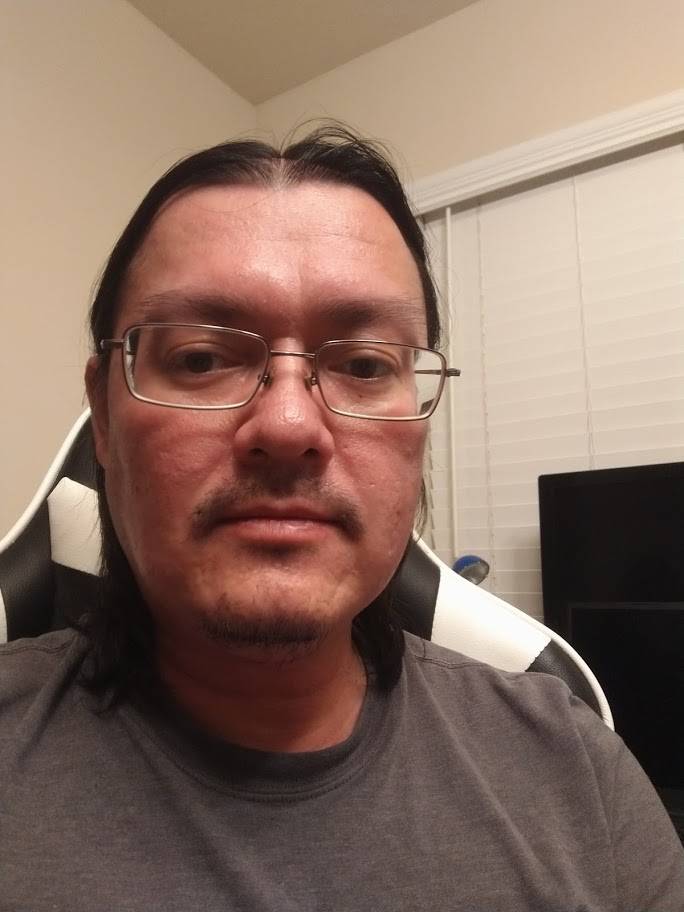
Dr. William Munroe is a lecturer in the Chemistry Department at CSUCI. He received his Ph.D. in Biochemistry and performed his postdoctoral research at the University of California, Los Angeles. His research interests involve studying small molecule-protein and protein-protein interactions. He is currently focusing on studying senolytic compounds.
Project Title and Description - "Evaluating Senolytics in a Planaria Model System"
This project ultimately aims to evaluate whether the senolytic class of chemical compounds would be capable of increasing the lifespan of the planaria flatworm. During aging there is an accumulation of senescent, or non-dividing cells, which is thought to contribute to the onset of age-related diseases. Planaria may be an ideal model system to study the effect of removal of senescent cells to affect lifespan as this organism has a great ability to regenerate damaged tissues. Senolytics are a class of compounds which induce the death of senescent cells in an organism by inducing apoptosis. This project would involve students reading the literature to find various senolytic drugs and their protein targets and evaluate the efficacy of these compounds in a planaria model system. To date, no published reports of these types of drugs have been tested using a planaria model system. The student project would be to first identify whether these drugs can interact with similar proteins in the planaria flatworm. A computational approach may be used to evaluate the binding location and binding affinity of the drug within the planaria protein. The chemistry department has a license for the computer program ICM Molsoft. This program can be used to evaluate how two molecules interact with each other. Presumably, if the senolytic drug is predicted to bind to a similar protein in the planaria model system, then it may function in a similar manner and induce apoptosis of senescent cells in planaria. An added benefit of using this computational approach is that the research can be performed in a virtual/online fashion. The results of this segment of the project may be used to aid in subsequent experiments in drug design (synthesis of a new compound) or testing of the drug in an in vivo setting. Since housekeeping of planaria requires minimal work (similar enough to keeping a goldfish) and is safe enough to be used in high school biology classes, students could safely work with this model system in their homes once the main part of the research project is completed. The flatworm can be purchased from Carolina Biological and be shipped to the student. Students would be expected to conduct all the computational research and any in vivo experiments for this project.
Click here to apply to Dr. Monroe's project.
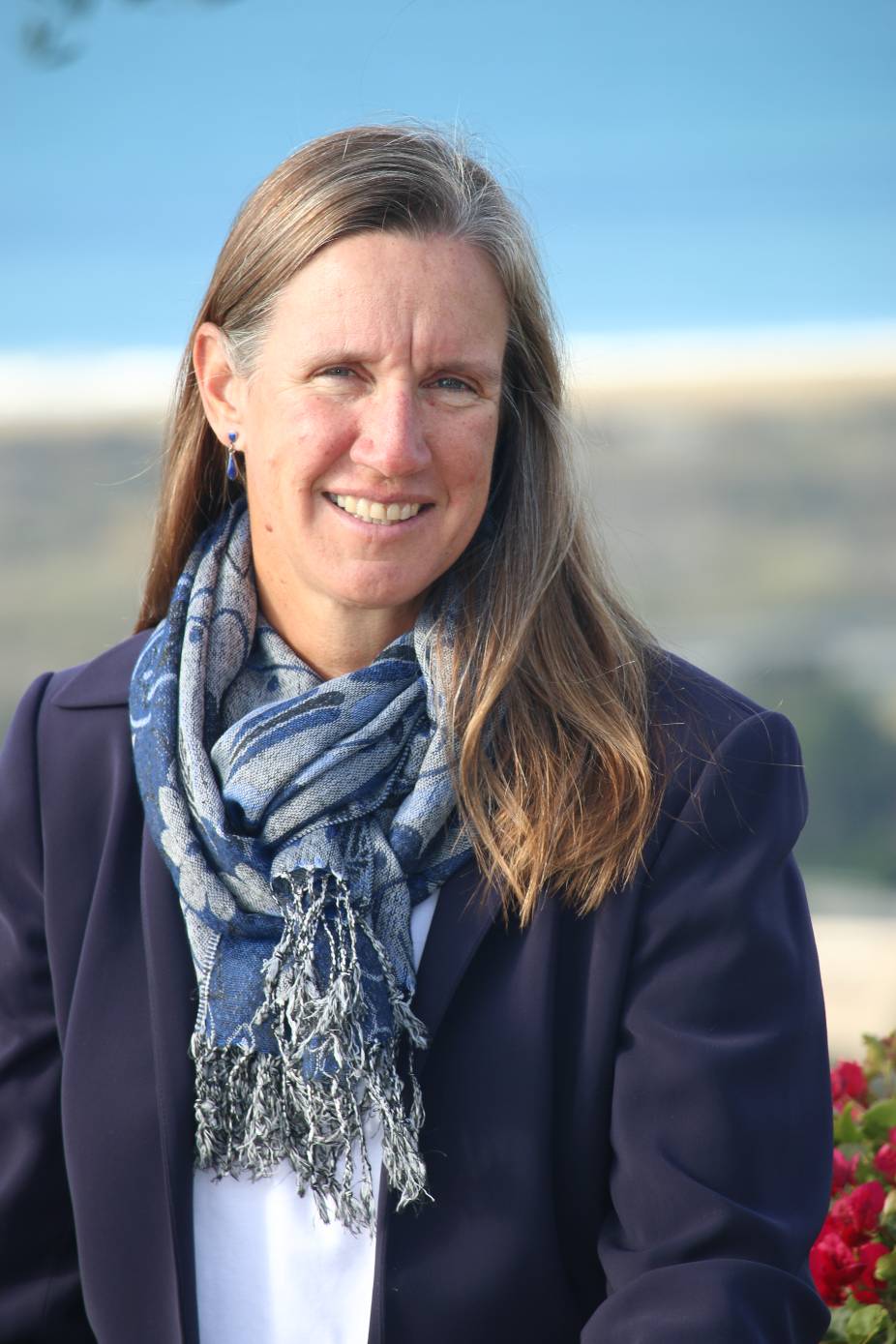 Dr. Cynthia Wyels is a math professor at CSUCI whose research projects have spanned topics from analyzing census data for the gray whales migrating off our coastline to exploring data on student outcomes following educational interventions. She first obtained funding for students to conduct summer research in 2004 and has since worked on research with over 90 students, some of whom have been co-authors on professional publications.
Dr. Cynthia Wyels is a math professor at CSUCI whose research projects have spanned topics from analyzing census data for the gray whales migrating off our coastline to exploring data on student outcomes following educational interventions. She first obtained funding for students to conduct summer research in 2004 and has since worked on research with over 90 students, some of whom have been co-authors on professional publications.
Project Title and Description - "Data Exploration: Student Success via Service-Learning at CSUCI"
The CSU system touts the ideal of access to education while seeking to provide high-quality degrees for its students. Towards this end, many people have worked to garner resources to build and sustain the implementation of high-impact practices such as student research, peer mentoring, and civic engagement. As CSUCI has matured, its ability to capture data that examines effects on and outcomes for subpopulations of students has improved. Meanwhile, the CSU Graduation Initiative 2025 has added focus on increasing graduation rates while closing “achievement gaps” between subpopulations of students. We propose a SURF research project in which students will learn and apply data analysis tools to examine the effectiveness of a particular high-impact practice. We propose examining the effectiveness of particular courses taken by a variety of majors and within general education. As approximately half of the units taken by students are outside their majors, developing means to examine the impact of educational interventions distributed across majors and general education courses could provide insights helpful in considering student success efforts. The Center for Community Engagement educates and supports faculty interested in offering service-learning courses. Service-learning has been identified by as a High Impact Practice because it has been shown to be beneficial for college students from many backgrounds, especially historically underserved students, who often do not have equitable access to high-impact learning. These practices take many different forms, depending on learner characteristics and on institutional priorities and contexts (Kuh, 2008). Courses designated as service-learning are required for some majors and are frequently taken to fulfill GE requirements as well. In 2019, 76 service-learning courses were offered by 48 faculty. As a result, 2100 students were able to serve at over 68 community partner sites. In our research, we will apply statistical analyses to examine educational outcomes for students who take one or more service-learning courses. Are such students more likely to be retained the semester after their service learning experience? How do their graduation rates compare to the graduation rates of other students of similar demographics? This project will use the enormous storehouse of CI data to explore the effectiveness of service learning as an educational intervention. (Consultation with Kristin Jordan, Data Scientist, has confirmed the feasibility of obtaining access to the necessary data.) To contextualize the project, the research team will consult throughout with Pilar Pacheco, Director of the Center for Community Engagement (CCE). The participating SURFers will acquire data analysis tools, perspectives on applying those data tools in a real-world setting for a client (CCE), and the satisfaction of helping the university better understand the impact of a particular high-impact practice on its students. SURFers will work as a team to learn and apply descriptive statistics such as correlation analysis, regression analysis, generalized linear models, t-tests and chi-square tests. They will complete human subjects training prior to beginning work with the data and will follow the protocols of an IRB proposal submitted by their faculty mentor. This project is appropriate for students who have successfully completed courses in differential calculus and probability and statistics. Some Excel/R experience would be ideal, though not required.
Click here to apply to Dr. Wyels's project.
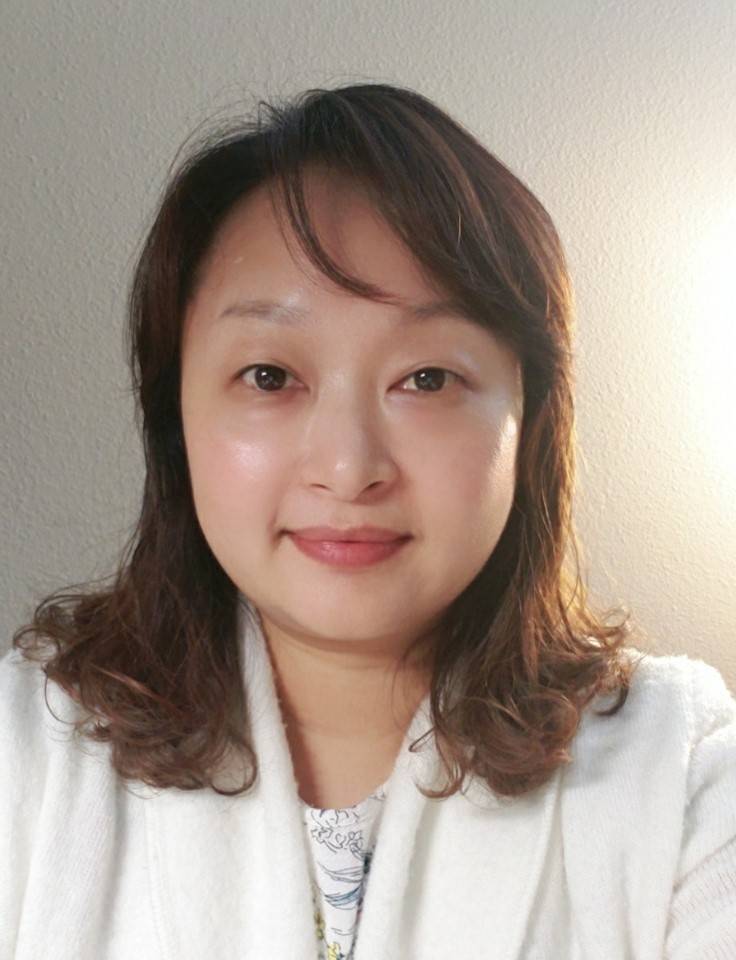 Dr. Hyunsook (Eunice) Youn joined the Communication Department at California State University Channel Islands as an assistant professor in 2020. Dr. Youn earned her Ph.D in Communication at Rutgers University, NJ where she began her journey of studying organizational communication. Her research interests mainly center around organizations, organizational members, social networks, information and communication technologies (ICTs), and community engagement. Her recent research project looked at communication networks among nonprofit organizational members, and its implications for organizational identification and community engagement in various organizational settings. She is originally from South Korea and as a first generation immigrant in the U.S. she's been always interested in looking at organizational communication in ethnic minority groups and its role in communities.
Dr. Hyunsook (Eunice) Youn joined the Communication Department at California State University Channel Islands as an assistant professor in 2020. Dr. Youn earned her Ph.D in Communication at Rutgers University, NJ where she began her journey of studying organizational communication. Her research interests mainly center around organizations, organizational members, social networks, information and communication technologies (ICTs), and community engagement. Her recent research project looked at communication networks among nonprofit organizational members, and its implications for organizational identification and community engagement in various organizational settings. She is originally from South Korea and as a first generation immigrant in the U.S. she's been always interested in looking at organizational communication in ethnic minority groups and its role in communities.
Project Title and Description - "The role of nonprofit organizations in ethnic minority communities in the resilience processes during crisis"
With the advance of new information and communication technologies (ICTs), people can easily assess various news and information. However, the extensive variation of racial and ethnic digital divides and digital literacy issues still exist, and such disparities can reproduce health inequalities due to lack of understanding and access to health prevention and risk management information. For example, with outbreaks of the current COVID-19 pandemic, there has been so much health-related information via multiple platforms. However, the questions such as “To whom and from where do people seek and receive the information they need?”, “How do people know which platforms or what kind of information are more credible sources to believe and follow during this time of so many uncertainties?”, and “How does such information influence people’s perceptions and reactions to the prevention behavior” need to be answered. According to Jones and colleagues (2020), insufficient knowledge and information on appropriate prevention can exacerbate existing race and ethnicity disparities. Therefore, further research is needed to identify information sources in ethnic minority communities such as Hispanic or Black communities, and there is a need to create effective messages and ways to disseminate information. To expand our understandings of ethnic minority group’s information-seeking behaviors and information sources, this proposed study aims to examine their communication networks within and outside their religious organizations and its influence on their resilience during this crisis. Thus, the goal of this proposed study is three-fold. First, this study wishes to find the association between ethnic minority groups’ communication networks and its influence on their information-seeking behavior to be more resilient. Second, this proposed research will assess the direct and indirect impacts of their communication networks within and outside their religious organizations on their risk management and health prevention practices. Third, this study aims to find out the role of religious organizations and social media on members’ resilience processes. This proposed study plans to adopt mixed methods by conducting interviews with the leaders of the ethnic minority group’s religious organizations and collecting questionnaire surveys from ethnic minority group members. To this end, student researchers will be involved in every phase of the research process: (1) contributing to the literature review, (2) developing semi-structured interview questions, (3) translating the questionnaires if needed, and (3) conducting interviews with 5-10 faith leaders of ethnic minority groups, (4) analyzing their interview data, (5) preparing practical and/or theoretical implications based on our findings, etc. Due to our current situation, all the interviews will be conducted via zoom (or any means like a phone call or google hangout, whichever they virtually prefer), and student researchers and I will mainly communicate with the leaders via emails or phone calls. The end result of this proposed research is expected to be a 20-25-page academic study suitable for conference presentations and peer-reviewed journal publication.
Click here to apply to Dr. Youn's project.
